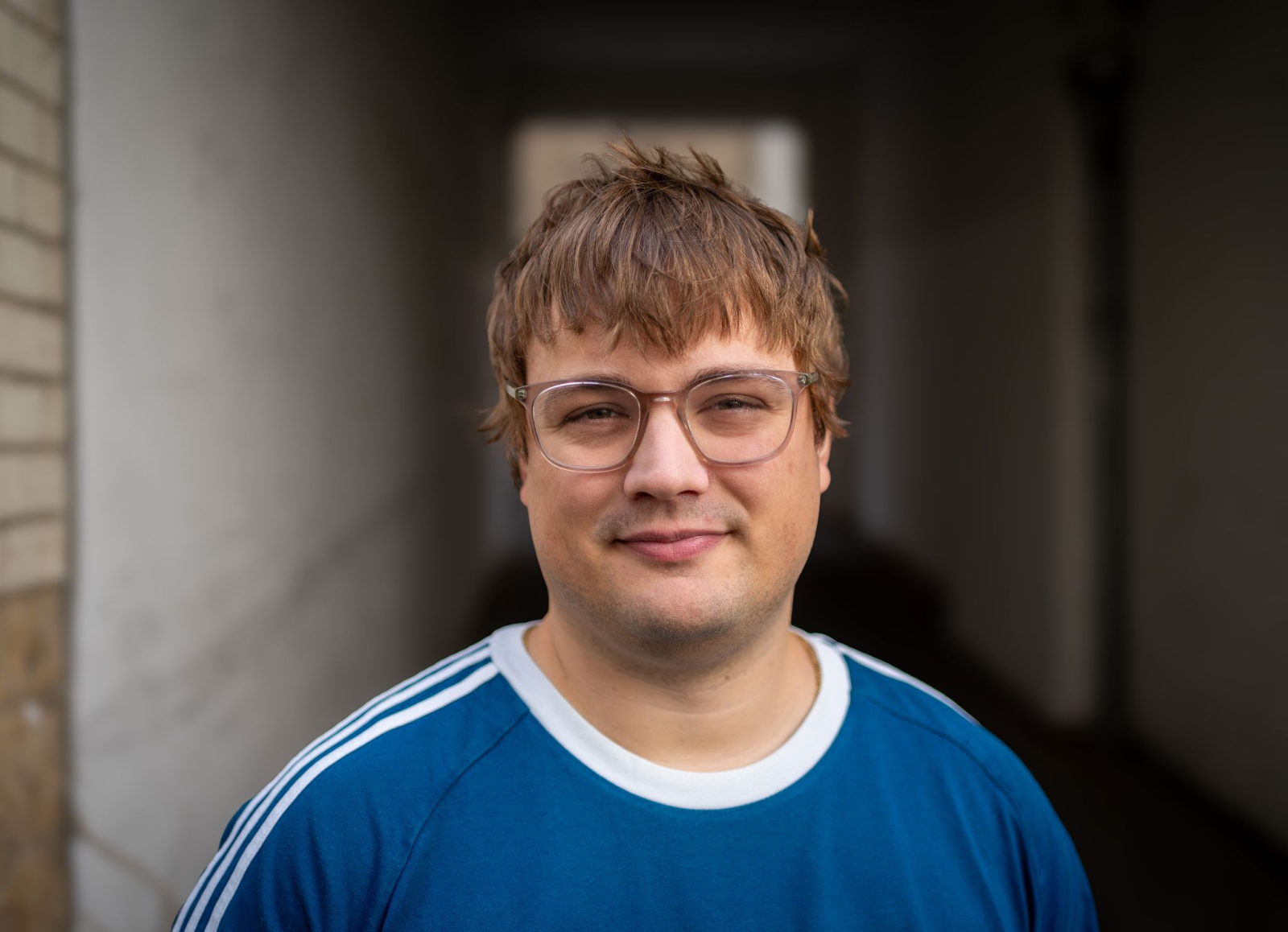Thea got it from a wolf, Winni got it from a motorcycle accident: her wounds, which later crusted over into scars, are heroically immortalized on a painted family tree that fills the wall. This is part of a macabre family tradition, in which Fabi is now supposed to join with his own scar. Does he even want that? And: What is he willing to give up just to belong?
These are the questions asked by the half-hour fictional short film “Kruste” by director Jens Kevin Georg, which will soon receive a special award: Konrad Wolf, a 30-year-old graduate of the Babelsberg Film University in Potsdam, is one of this year’s winners of the Student Oscars.
Buy a suit and break in your shoes
For the young director, who lives near Gummersbach (North Rhine-Westphalia) and studies in Cologne, this is “a great award” for himself and his team, as he explains in a Berlin café. “We are grateful for all the opportunities.”
Before the award ceremony on October 14th in London, he has other questions on his mind: finding a suit, for example. “That really stresses me out,” says Georg. The shoes also still need to be broken in.
Three winners in the “Narrative” category
In London, the trophies for the winning short films will be awarded in a total of four categories. “Kruste” won in the “Narrative” category – together with two other winning films: “The Compatriot” by two directors from the Czech Republic and “Neither Donkey nor Horse” by a film graduate from the US University of Southern California. This year a total of 2,683 contributions were received from over 700 study institutions from all over the world.
“Kruste”, filmed in Poland and northern Brandenburg, is about growing up, individuality and group membership. Topics that Georg has often implemented on film, as he says. «I’ve always been very interested in what it’s like to be outside, to want to belong. Or that was a point where I always said in my previous films: “Be who you are and don’t care what other people say. Just stay true to yourself.”»
Be honest, even if it hurts
But he realized that he couldn’t live up to his expectations – and actually wanted to fit in in a variety of situations. «Then I thought to myself: “If you weren’t honest enough in your previous films, try it now, even if it hurts.”»
And it looks like this in the film: The twelve-year-old boy Fabi (Philip Kapell) is supposed to complete a dangerous test of courage in order to get a scar – and to prove himself as a full-fledged family member. The family motto: “Scars make you strong”. While his brave, younger sister Bea (Luise Landau) is encouraged to hurt herself by her grandfather (Heinz Wanitschek) and her scarred father (Sven Hönig), sensitive Fabi struggles with the challenge.
“There is an outsider in all of us”
“Kruste,” explains Georg, is an outsider story. «My need for the film was to say: “There is an outsider somewhere in all of us.” Maybe we don’t talk about it enough.”
The style of the film has something fairytale-like; the paintings of the injured family members in the family tree are reminiscent of the martial “Struwwelpeter” stories. One concern was to strike the “thin line between heroization and horror,” says the director.
Gold, silver or bronze?
He also got inspiration from Franz Kafka’s famous story “The Metamorphosis,” in which Gregor Samsa wakes up one day as a vermin. The story shows how deep the pain of being an outsider can be.
Kafka, who died 100 years ago at the age of just 40, is still relevant for Georg. «Who knows where he is now. Maybe he can be happy that he brings comfort to many people.” His themes had something universal and transcended time.
At the Oscars themselves, things get even more exciting on the day of the awards ceremony. Only then will the three winners in the categories “Animation”, “Narrative”, “Documentary” and “Alternative/Experimental” find out the order of the awards – gold, silver or bronze. Georg has one wish in particular: “To spend a very nice evening in London as a team.”
